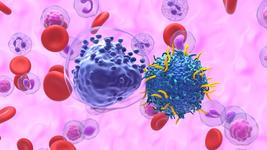Tackling Climate Stress by Reinventing Crop Resilience
CMN Intelligence - The World’s Most Comprehensive Intelligence Platform for CRISPR-Genomic Medicine and Gene-Editing Clinical Development
Providing market intelligence, data infrastructure, analytics, and reporting services for the global gene-editing sector. Read more...
Rewilding seeks to restore traits that modern crops lost during their breeding for high yield, such as genes for salinity and drought tolerance. This process involves using advanced gene-editing tools like CRISPR to transfer genetic elements from wild relatives back into elite cultivars. However, the multigenic nature of abiotic stress tolerance presents challenges, as multiple interconnected genes often govern these traits. Overcoming this hurdle requires precise phenotyping at cellular levels to identify and incorporate the most effective gene combinations while avoiding unwanted traits from wild species.
De novo domestication offers a complementary approach by focusing on stress-resilient wild plants that already possess desirable traits. Instead of modifying existing crops, this strategy uses modern genome-editing techniques to adapt wild plants or orphan crops for agricultural use. Key domestication traits such as loss of seed shattering or increased yield are introduced while retaining the plants’ inherent resilience to stresses like drought or salinity.
The feasibility of this method has been demonstrated in species like wild tomato and quinoa, although the yield of such newly domesticated crops may initially lag behind established cultivars. Despite its challenges, de novo domestication holds promise for diversifying agriculture and ensuring food security under changing climatic conditions.
The study underscores that both strategies face technical and societal barriers, including the need for policy reforms to streamline gene-editing regulations and broader public acceptance of genetically engineered crops. Addressing these challenges is essential for developing sustainable agricultural systems capable of withstanding future climate extremes.
This study was conducted by Michael Palmgren from the NovoCrops Center, University of Copenhagen, Denmark, and Sergey Shabala from the University of Western Australia and Foshan University, China. It was published in Frontiers in Science on 5 December 2024.
To get more CRISPR Medicine News delivered to your inbox, sign up to the free weekly CMN Newsletter here.
Tags
CLINICAL TRIALS
Sponsors:
Base Therapeutics (Shanghai) Co., Ltd.
Sponsors:
Base Therapeutics (Shanghai) Co., Ltd.







